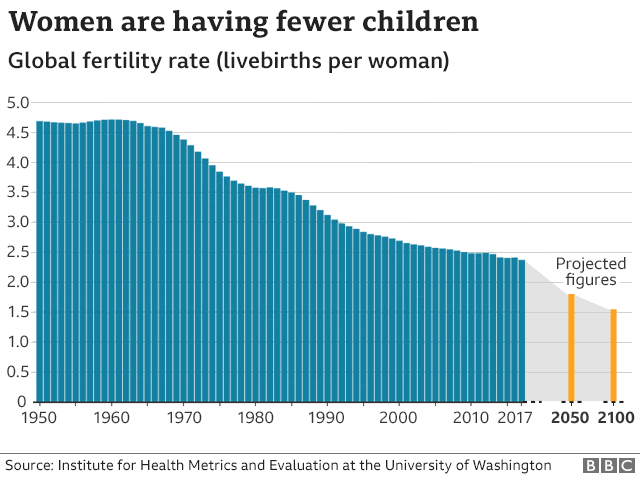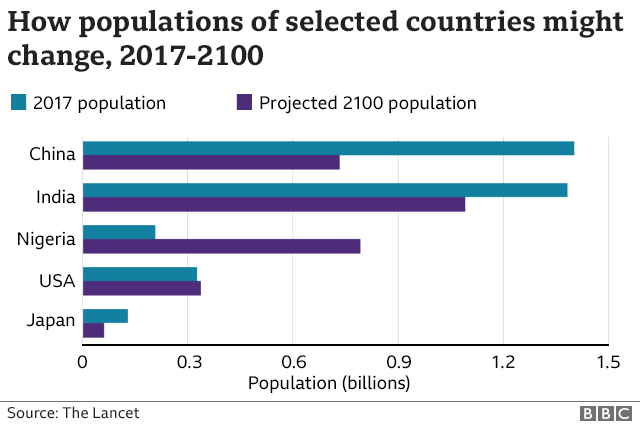When something new comes out should we jump on board and believe it just because a credible scientist says it? The simple answer is no. It takes time to really gain the knowledge and come to a correct and complete answer. Depending on the subject, the factors can vary over time, so that an answer to an issue today may not be the answer tomorrow. As a result, going to extremes over an issue is not a good idea.
Over the past 50 years we have heard increasing concern from scientists about global warming, lack of fresh water and lack of food for the ever growing population. Some say we need to reduce the world population to 500 million from our current 7.5 billion. That is a 93% decrease in population. Put another way, 93 of every 100 people on the planet need to die in one way or another!
I have recorded some video’s on these and other topics over the past few years. A video on global water supply is https://youtu.be/ZKaCtstUKR0. One on global food supply is https://www.youtube.com/watch?v=FNmxCWEpqlw&feature=youtu.be. One on over-population is https://www.youtube.com/watch?v=OIqVKytEAAU&feature=youtu.be. Many others including many scientists (which I am not) have also written on these subjects with the same view. In fact my research draws on these scientists.
This variability in answers from scientists is not something new. Scientists throughout history have made mistakes. It is understandable as we are always learning more, gaining a deeper understanding.
The Corona virus is the current world threat. What is the next one? Maybe it will be that the world is under populated. Thats right, ‘under’, not ‘over’. On July 15 2020 the British Broadcasting Corporation (BBC) published an article (https://www.bbc.com/news/health-53409521) claiming just that, including the following images.

Higher levels of education for women, more women working, easier access to birth control all lead to families with less children and thus decreasing population in future generations. The study by the University of Washington predicts that by the year 2100 China’s population will be half of what it is now and India’s will be about 80% of todays. As the worlds most populated countries these changes will have a huge impact.

Covid-19, from what I have heard (but have no substantial data) is helping ‘fight’ climate change. Human Rights Watch posted an article (https://www.hrw.org/news/2020/04/16/how-covid-19-could-impact-climate-crisis) opening with the statement “Satellite images showing dramatic drops in air pollution in coronavirus hotspots around the globe have circulated widely on social media, offering a silver lining to an otherwise very dark story.” They go on to say we must continue to fight it. For now, with so many people staying home for the past half year and airline traffic almost to a standstill, carbon emissions must have drastically reduced. Sorry Mr Al Gore but it looks like the ‘An Inconvenient Truth’ predictions in 2006 are a little, or a lot, off the mark.
Population decline will lead to new problems. As the populations of many countries, including Canada and USA get older there are less workers in the work force to pay taxes to cover our retirement benefits and medical costs. Less workers for retirement homes and nursing care. Countries will be paying immigrants to come instead of restricting them! It will be interest times, but then every age seems to have something that is ‘interesting’.
Back to my opening questions “Are scientists credible? Should we believe them?” I say we should listen, look at their research, look at opposing research and then make an informed decision. Generally they are credible, although fraud does exist in every industry. Generally they do their best in trying to help so we should believe them, but not with a ‘blind faith’ type believe just because a person is a ‘scientist’. So let’s not go to extremes like trying to reduce the world population by 93%, get too passionate about food or water shortages or climate change or a myriad of other issues. “Everything in moderation” some wise sage of days past has said.
The Museum of Natural Science and History seeks to present alternative views, based on the same evidence, to many claims made by scientists. The different views come from our different foundations, different beliefs. One belief is that we evolved over longs periods of time by random chance. The other is that there is a creator, an intelligence, the God revealed in the Bible, who created all things. Base on your staring belief, your starting foundation, you come to different conclusions in many fields of science.
In this case, world population concerns, it is not this different foundation directly, but indirectly, that leads to the different conclusions and suggested actions. For in the Bible God says says twice that mankind is to fill the earth (Genesis 1:28, 9:7). Thus over population will never be a real problem.
PS – in this blog I referred to a few short video’s. This same material and much more on many different areas of our world and universe are covered in my book ‘The Ultimate Design’ available here: https://www.lulu.com/en/ca/shop/edward-van-gennip/the-ultimate-design/paperback/product-1g2w94gn.html
Just last week I released an eBook version which can be purchased here: https://www.amazon.com/Ultimate-Design-Edward-Van-Gennip-ebook/dp/B08FCNRPRH/ref=sr_1_1?dchild=1&keywords=The+Ultimate+Design&qid=1597107561&s=digital-text&sr=1-1
